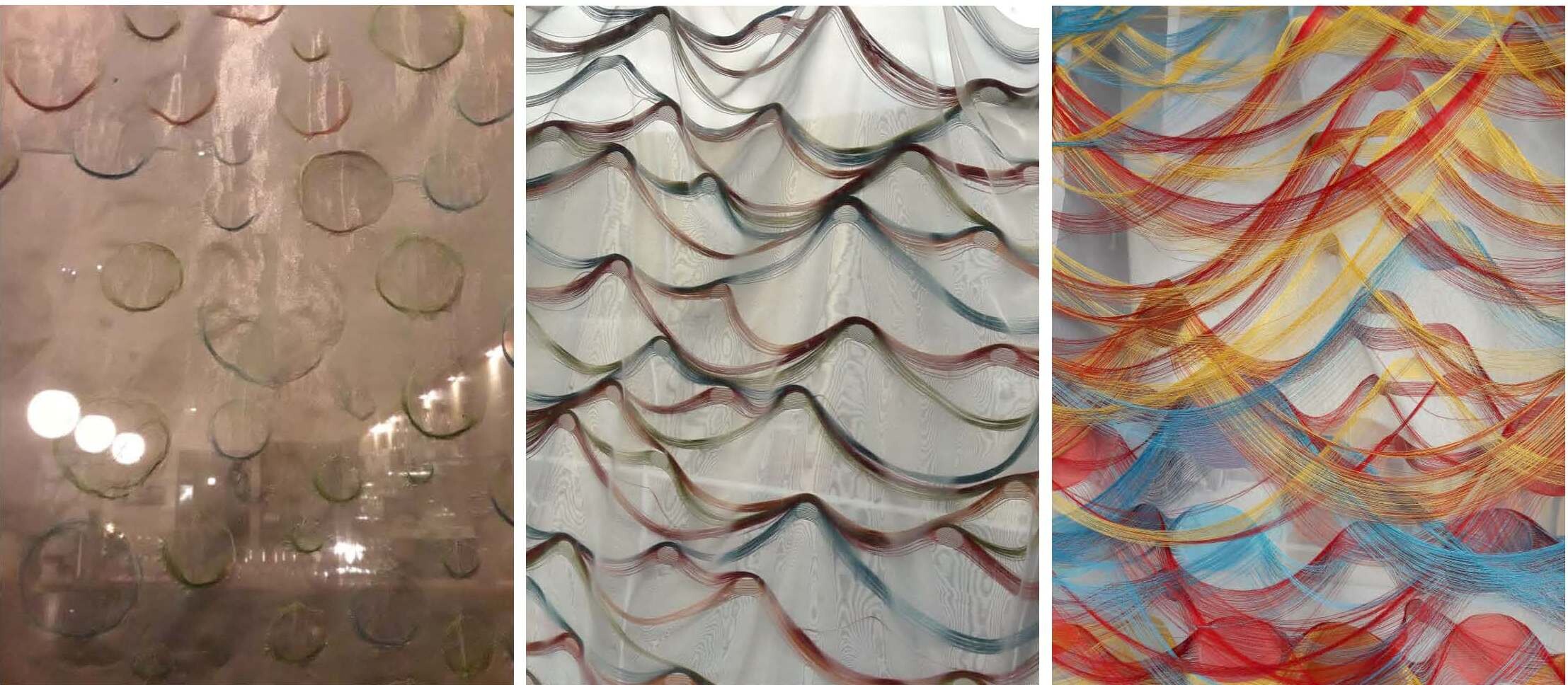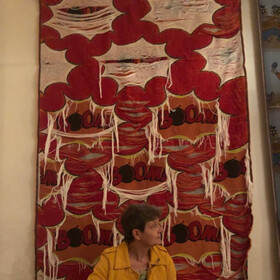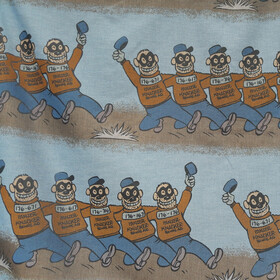Vivian Christlein - When are textiles works of art? Can I even use machines to create a unique work of art?
Published on August 24, 2020
Trilogy "Boom 2020": Textile Color Explosions
First the threads are locked in a pocket (1), then they hang between two layers of fabric, (2) finally, they are released to explode (3)
After training to be a hand weaver - a beautiful but unprofitable craft - Vivian Christlein graduated from Münchberg university in 1992 with the degree "Diplom" in textile design. She worked in the fashion sector for three years. Since 1995 she has specialized in the production of jacquard fabrics, developing designs for all imaginable types of textiles - scarves, tablecloths, decorative fabrics, and upholstery fabrics. Her most recent role has been with a company that specializes in producing flame-retardant textiles for the hotel industry.
Personal expression in the textile industry is limited by feasibility and sales opportunities, i.e., the market. However, Vivian Christlein, who is particularly interested in the technique of jacquard weaving and has years of experience in it, instead considers this question: How might I design a reproduced, machine-controlled fabric with a pattern alignment in the width that is set automatically, so that it becomes unique in its own way? How can a unique work of art be created with a machine?
The width is pre-set. The height can adapt freely; even room-high if desired. The jacquard technique, in contrast to shaft weaving, is defined by the fact that every single thread can be moved. Vivian Christlein also processes the woven piece by cutting away the warp or weft or both so that threads or pieces of fabric can be individually moved, hang down, or form pockets.
Vivian Christlein has taken part in the annual Berlin district festival, "48 Hours of Neukölln", in Berlin since 2011. The exhibits take place the "Föllerei", a small restaurant run by her friend Christiane Föll, each lasting just a weekend and always with a different motto. She seeks her inspiration for a given topic - which range as widely as "Shadow" - "Future 3" - or "Boom" - in photos created by her or others, or in newspaper articles. Sometimes, the starting point is the desire to try something new from a technical standpoint, in which case the design is developed directly on the computer. Ideas and images developed in this way then have to be integrated with the technology of machine-assisted weaving: The size of the work must be adapted to the machine’s specifications (no more than 70 cm). The color and the different weft materials must be determined from up to 8 options. Of course, the size and fineness of the fabric depends on the strength and density of the materials used. Then the motif is scanned in and the colors are reduced to the number of desired effects. The bindings - that is, the thread crossings of the warp and weft - are constructed and assigned to the colors. Then the pattern can be programmed into the loom, woven and, if desired, post-treated.
For Vivian Christlein, the interaction of fabrics in a room is particularly appealing: She considers how a room’s atmosphere changes completely and how fabrics change as natural and artificial light changes. It is exciting for her – liberating and inspiring at the same time – to create objects for a specific space and not to have to think about having to sell or reproduce it.
Vivian Christlein before “Boom”: The Beagle Boys dance for joy. They have thrown their bombs through the fabric.
text and photos: © Gaby Franger, Frauen in der Einen Welt; Vivian Christlein
Translation from the original German: Steffen Meyer
Helmbrechts exhibition: "Experimental jacquard fabrics" can be seen until the end of 2020 in the attic of the Upper Franconian Textile Museum. (Helmbrechts)
to the exhibition "TECHNIK#Weiblich#Logisch"
to MUSEUM ONLINE "TECHNIK#Weiblich#Logisch"
back to "home"








